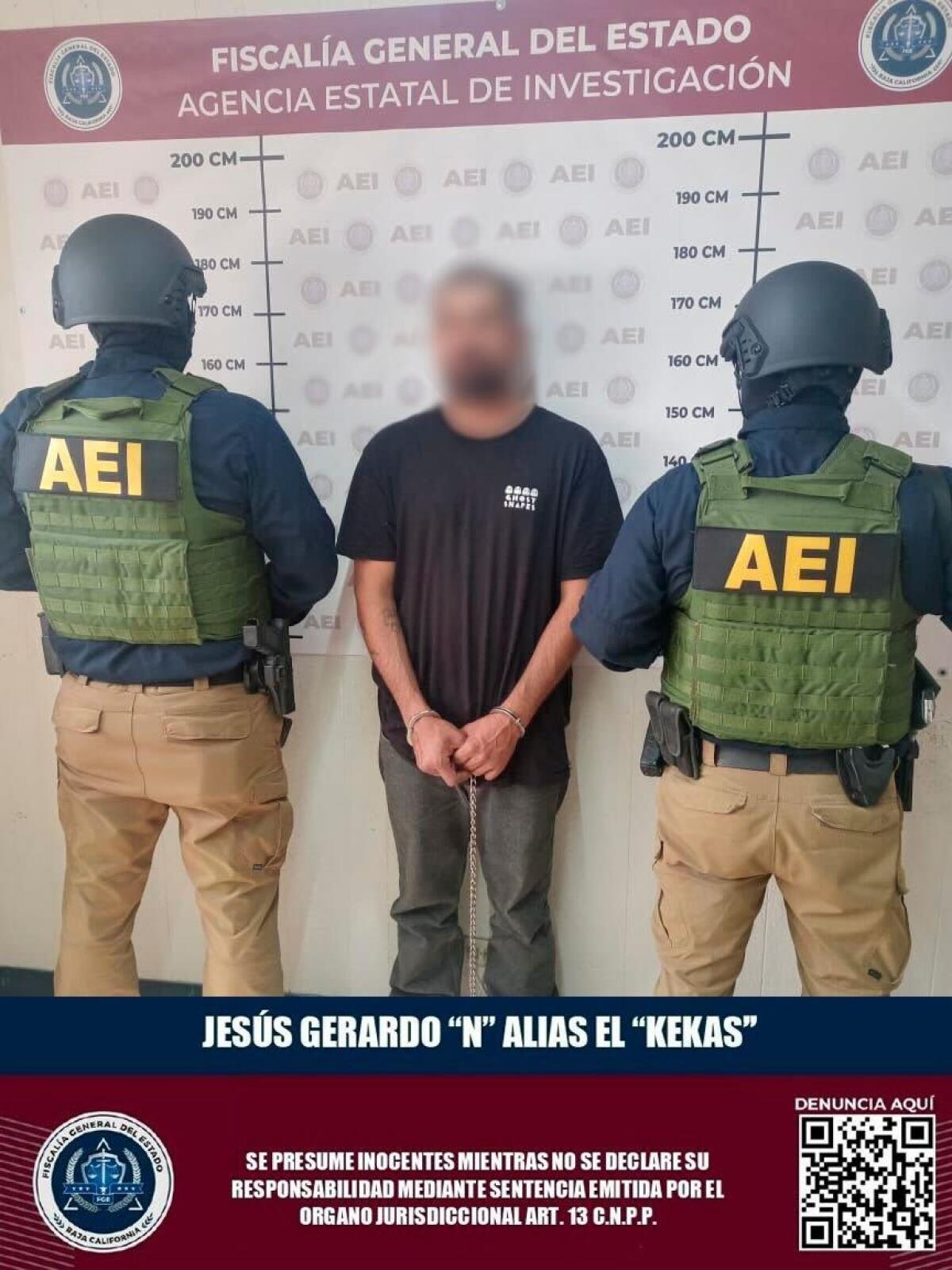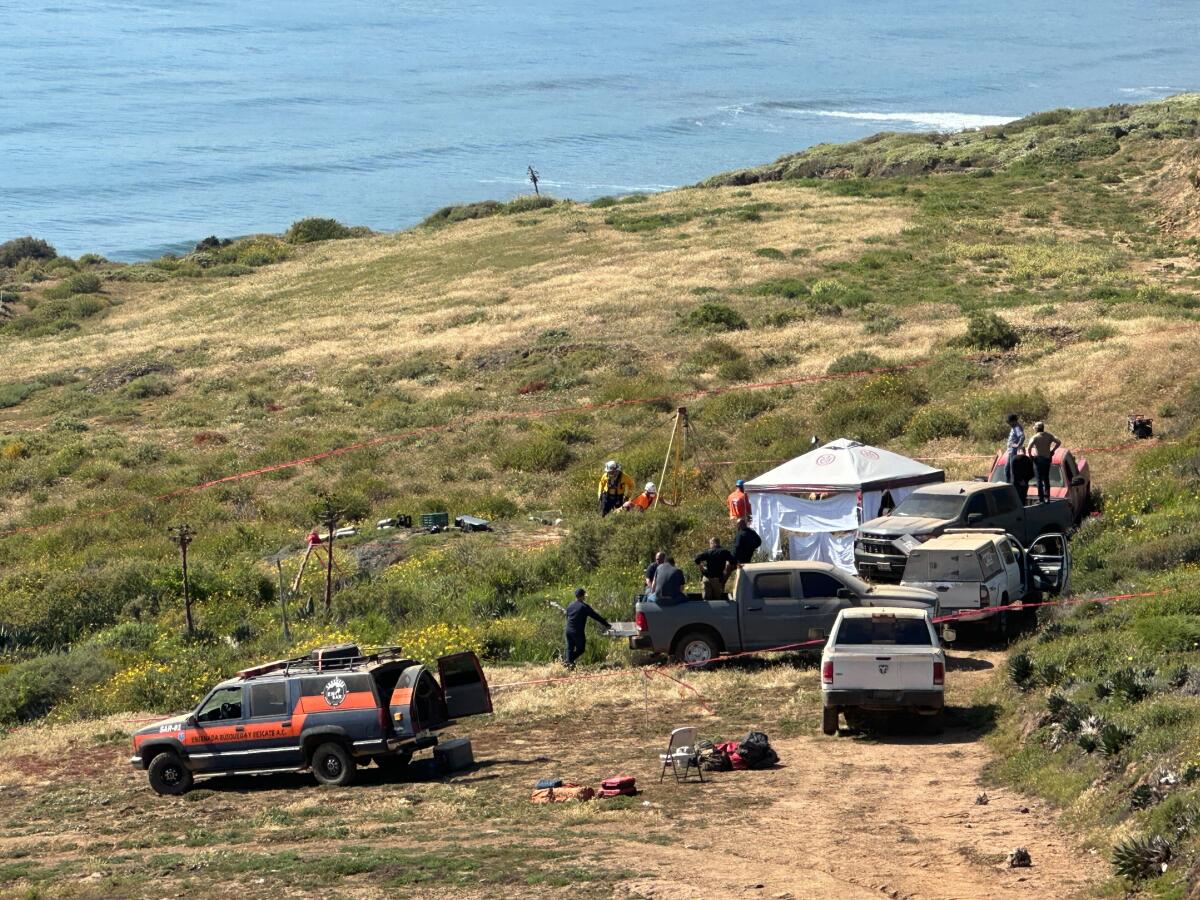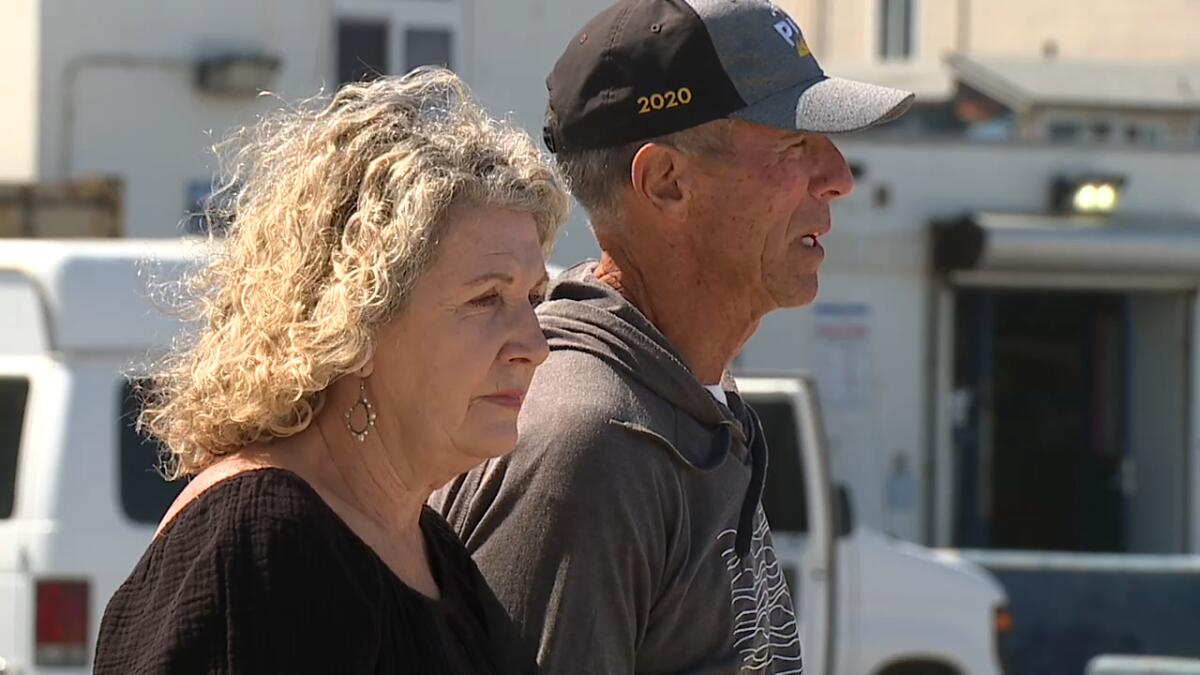Testimony details alleged motives in Mexico surfer slayings: ‘Money, devices and the pickup’

- Share via
ENSENADA — A Mexican judge on Wednesday laid out the evidence against a man arrested in connection with the disappearance and killings of two Australian brothers and their American friend, including the testimony of a witness who told investigators that the suspect allegedly boasted he attacked “three gringos.”
Identified only by his first and middle names — as is customary in pending criminal cases in Mexico — Jesús Gerardo, 33, will remain in prison charged with forced disappearance, the judge ruled during a detention hearing in an Ensenada courthouse. Prosecutors have not filed murder charges in the case, although they said they expected to at a later date.
Callum Robinson, 33, an Australian living in San Diego, his 30-year-old brother, Jake Robinson, who was visiting from Australia, and their friend Jack Carter Rhoad, 30, of San Diego, were found dead Friday in a remote area south of Ensenada after being reported missing while on a surfing trip. The trio were last seen April 27.

More details of the investigation were revealed during the 40-minute hearing. The key witness is the suspect’s girlfriend, who told investigators that the suspect said he committed the crime for the tires on the Chevrolet pickup in which the victims were traveling. She was not present for the hearing Wednesday, but the judge read her statements in court.
While the trio was camping in a remote area in Punta San José in Santo Tomás — south of Ensenada — they were ambushed in a robbery by the suspect— nicknamed “El Kekas” — and others, whose identities are still unknown, according to investigators.
Prosecutors said Sunday the victims were shot in the head while resisting the robbery.
The victims were supposed to check into an Airbnb in Rosarito. When their family and friends did not hear from them, one of the victim’s concerned relatives drove to the campsite, as he knew there was no cellphone signal there, according to investigators. He found burned tents and two water containers with the logo of the company where one of the victims worked.
At the scene, authorities found evidence such as blood stains, drag marks, a dental piece and a shell casing, leading them to believe that the group was attacked.
The suspect’s girlfriend, 23, was detained last week by Ensenada police because she was in possession of a cellphone believed to belong to one of the victims.
When questioned by authorities, she said her partner left Saturday night in her Ford Ranger pickup and returned with the victims’ vehicle.
According to one interview she had with investigators, the suspect said he had “f—ed up three gringos,” meaning that he had killed them, the judge said. When the woman asked him about it, the suspect said it was because “they had a lot of money, devices and the pickup.”
The woman said she was scared because her boyfriend is a violent person. Later, the suspect allegedly told her he was going to “get rid of the pickup to Santo Tomás.” The vehicle was later found burned without tires in the area.
He allegedly returned with four tires. “Look what I brought you,” he told her, she said.
Prosecutors found a gun, which was determined to have been used recently, inside the Ranger that was allegedly used by the assailants. Prosecutors believe that more people are involved in the crime.

After a search, the victims’ remains were found inside a well about 50 feet deep on a remote and difficult-to-access oceanfront lot about four miles from where the victims had camped.
A fourth body, not related to the investigation and likely dumped there weeks earlier, was also found at the bottom of the well. Mexican authorities said Wednesday that the body had not yet been identified, although they are investigating if it belongs to someone connected to the property.
After reviewing the evidence, the judge ordered that the suspect remain in custody for at least the next six months to continue with the investigation.
“I will ensure that, as in all cases of violence, the full weight of the law is applied and that there is no impunity,” Baja California Gov. Marina del Pilar Ávila said in a statement Wednesday. “We have also received confirmation that the investigation is still ongoing to establish the facts, get to the truth and punish the other alleged perpetrators of this heinous crime.”
Prosecutors left the courthouse without further comment, saying the Baja California attorney general would later discuss the case. The suspect’s public defenders could not be reached for comment.

On Tuesday, the parents of the brothers spoke about the tragedy in Ocean Beach, at one of Callum’s favorite surf spots.
“Our hearts are broken and the world has become a darker place for us,” said Debra Robinson, her husband at her side. “We also mourned the loss of Carter Rhoad, a close friend. They were young men enjoying their passion of surfing together.”
She said Callum considered the U.S. “his second home.” His brother, Jake, was a “happy, gentle and compassionate soul,” she added.
“Now it’s time to bring them home to family and friends, and the ocean waves in Australia.”
More to Read
Sign up for Essential California
The most important California stories and recommendations in your inbox every morning.
You may occasionally receive promotional content from the Los Angeles Times.










